Nine of Cups
A conversation with costume designer, Olga Mill, about happiness, dreams coming true, creativity, how clothing informs identity, and what happens if everything works out?
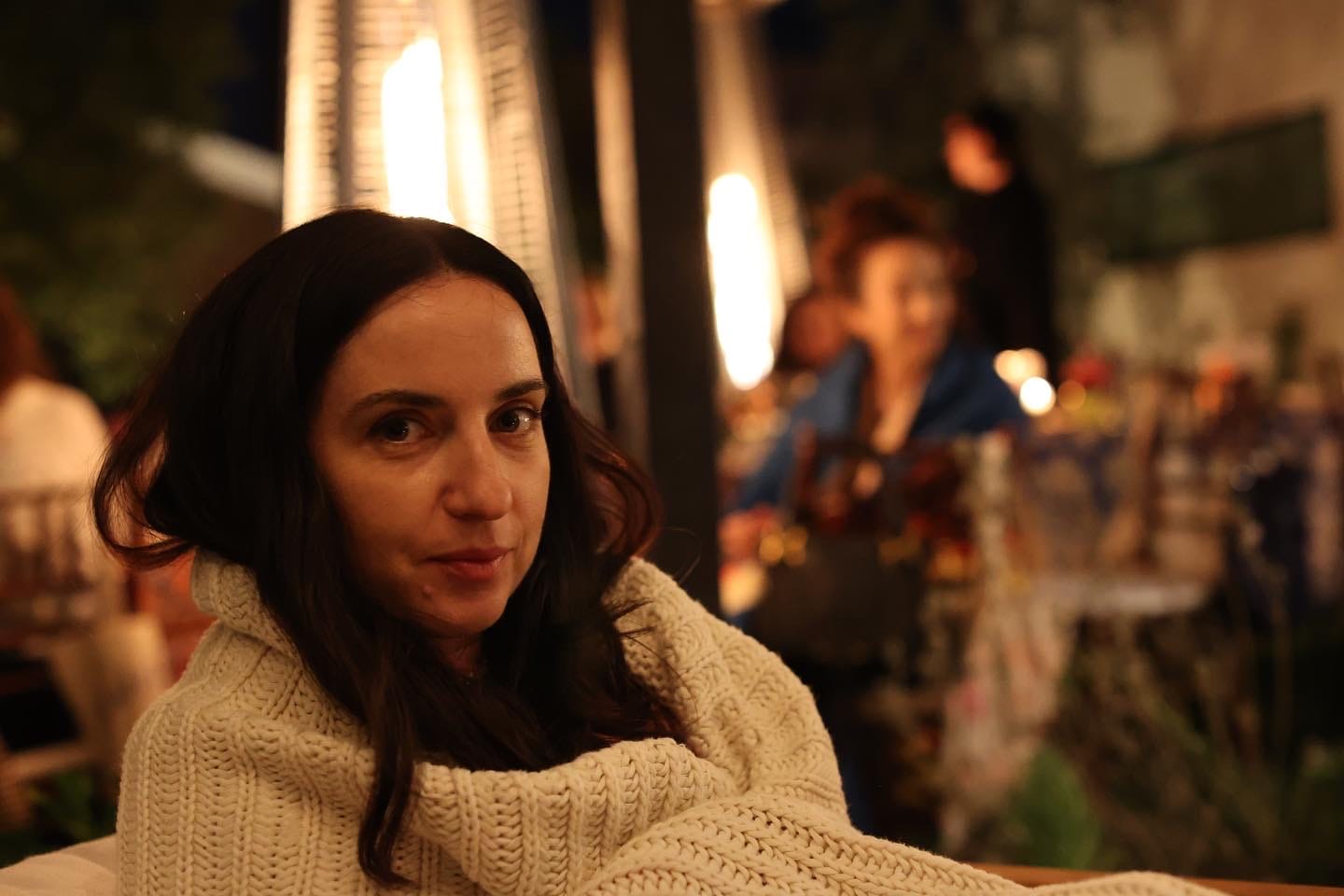
Nine of Cups Playlist
What do you do when you get the thing you’ve always wanted?
What happens if everything works out?
The nine of cups is about wishes granted, dreams fulfilled, contentment, satisfaction. If you’re like me, an anxious lunatic for whom perseverating on what could possibly go wrong is your most natural state of being, dreams coming true can feel threatening. I’m not entirely sure what that’s about — I know that striving feels comfortable for me. If I desire something, I can focus. If I’m working toward something, the roiling in my subconscious has a purpose. Once I get the thing that I’ve been striving for, I’m waiting for the proverbial other shoe to drop. I experience the most anxiety and depression when I’m in between projects, when I don’t have a new dream to latch on to and work toward.
I want to be a person who can take pleasure in my wins, who is grateful and able to acknowledge the hard work that goes into making your dreams come true without immediately needing more. I know if you asked teenaged me what she hoped her life would look like as a grown up, the answer would look an awful lot like my life right now. So what the fuck is my problem?
This week, I spoke to my friend, the brilliant costume designer, Olga Mill, about creativity, longing, falling in love, and dreams coming true. Olga was the costume designer for Y: The Last Man, and her work on that show is incredible. I love the way she thinks about character and identity, how she was able to synthesize iconic looks from the graphic novel within the grounded world of the series, and the fact that she turned the color pink into something sinister.
Olga recently designed A24’s Love Lies Bleeding (so fucking good, if you haven’t seen it, you must), and I highly recommend some of the interviews she’s done about that film if you’re interesting in learning more about her process. Her credits are bonkers cool – Eileen, Never Rarely Sometimes Always, Hereditary, First Reformed, and so much more. I’ll include some links to other Olga interviews below.
Olga is a brilliant, thoughtful designer, and one of my all time favorite collaborators and friends. She’s also built a really dreamy life for herself, one where she has a fulfilling creative career, a supportive partner she loves (and is about to marry!), and time for dreaming, hiking, cooking, and living. In this interview, we talk about how immigrating at a young age contributed to the way she thinks about design, how heartbreak can lead to breakthroughs, why sometimes it’s easier to be present in the struggle than it is to enjoy the win, and how the creative process can be both orgasmic and a little like taking a shit.
Our conversation has been edited and condensed for clarity. Enjoy!
Eliza: What did you dream about as a child? I’m just diving right in. What did you want your life to be? What did you think it would be?
Olga: The first word that comes to mind is attention, actually, in whatever form that came in. There was a daydream projector reel in my head where if you boil it down, it was probably just an image of me twirling around on stage, and everybody's just clapping.
Eliza: A performer!
Olga: No, well, yes, because I remember going to see a theater performance and seeing kids in the show and wanting to sign up…
Eliza: Dodged a bullet there, really.
Olga: One hundred percent. I dabbled in the performing arts, and very quickly, was like, Oh, no, no! I think what it actually boiled down to is wanting positive attention from adults. It's different from your peers. And really, if we're gonna therapy it, I think it was about wanting positive reinforcement from people who I perceived to have power, which was adults.
Eliza: Where do you think that comes from? Can you paint me a picture of your childhood?
Olga: I was born in the Ukraine. At five years old, my family moves to New York. When you immigrate that little in some ways it's a lot easier because you're not self conscious enough to think I don't fit in. But you're still sussing out a whole new kind of culture. So at five, I have to figure out who has power, who everybody thinks is cool, and how I could plug into that. I said Oh, it's adults who have power. But really it was anyone who felt American.
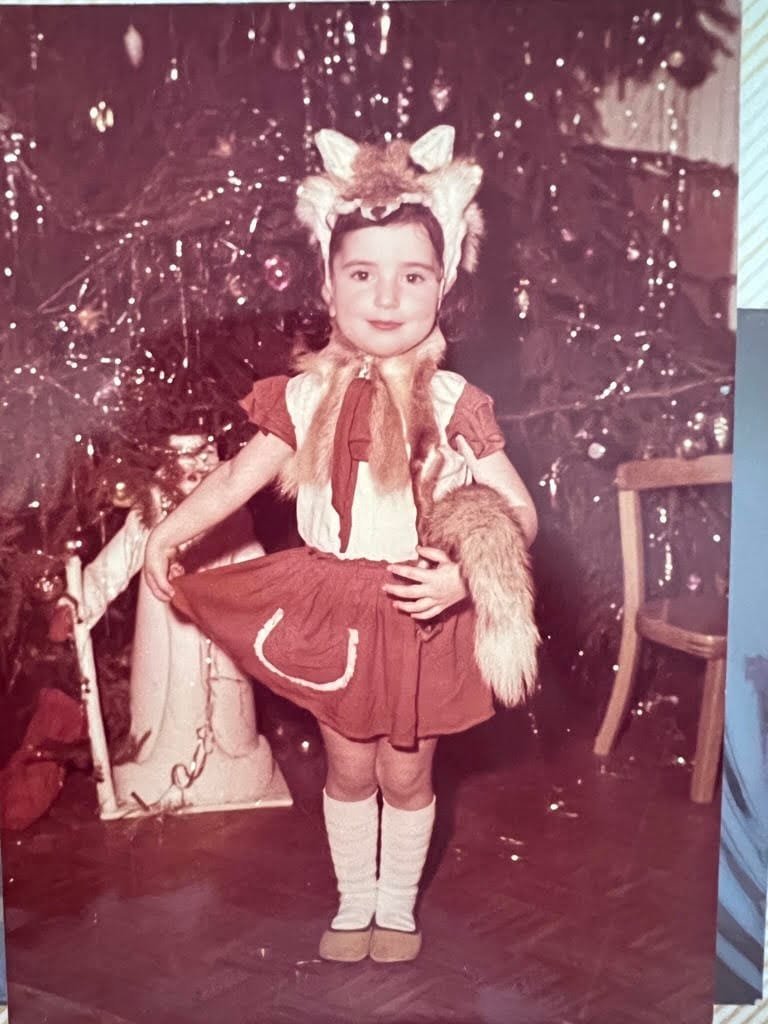
Eliza: Did you speak English before you came?
Olga: No.
Eliza: Wow!
Olga: Not at all.
Eliza: Do you still speak another language?
Olga: I speak Russian. When I was born, Ukraine was part of the Soviet Union. So I speak Russian, but I speak like a 5 year old, because I never learned how to read in Russian. My vocabulary is truncated. I can speak fluently, and I can get around. But it would be hard for me to have an in-depth conversation like this, you know?
Eliza: Did your parents speak English when they came?
Olga: No. I remember them taking classes. My sister was nine and I was five. The three of them had to learn English in an academic way… take classes, learn the alphabet, whereas, I was little enough to just sort of sponge it. I don't remember consciously learning English. It was sort of like I didn't know it and then all of a sudden… Oh, my thoughts are in English.
Eliza: Wow! Did you guys speak English at home?
Olga: No, it was only Russian, and then as my sister and I started speaking English exclusively out in the world it became a kind of a hodgepodge where a sentence would be half English, half Russian.
Eliza: Where in New York did you move to?
Olga: To Bensonhurst, which is South Brooklyn, not far from Coney Island. It's where Saturday Night Fever was filmed. It’s a working class immigrant neighborhood — it was really Italian in the seventies. There were some Eastern European immigrants there, not a ton. My parents made a choice not to move to Brighton Beach or somewhere that would have been more immersive. Even now the immigrant population of Bensonhurst kind of rotates, but the vibe is the same. There will never be a coffee shop. Whenever people are like, New York really changes, everything is a designer store and a coffee shop… If you just go to the outer boroughs, everything is still the same.
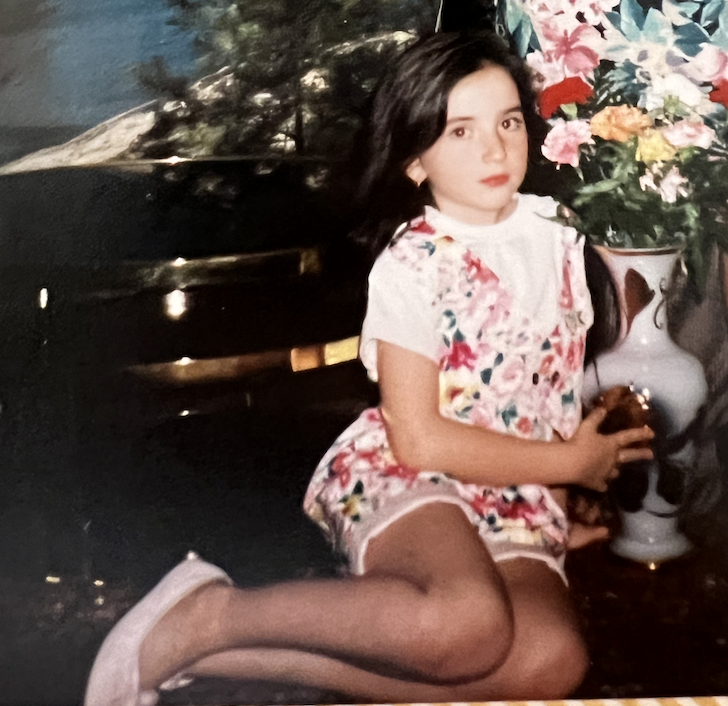
Eliza: What did you imagine being an adult would look like when you were a kid?
Olga: To me, being an adult was (because of what I was modeled): You have a partner. You go to work. You have kids. It was probably so stressful for my parents to pick up their life and immigrate. I delusionally thought a lot of things that my parents did were just their hobbies. I remember being like, you like to clean the house every Saturday. My mom would make us help. And in my mind I was like you like vacuuming, you like cleaning, I like cartoons, I don't make you watch my cartoons, why do I have to do the things that you like? Now, as an adult I'm like, Oh, these are conscious efforts, responsibilities and tasks you do to run your life. When I was little, I just thought those must be the things that you enjoy doing when you grow up.
Eliza: I remember thinking, I guess when I'm an adult, I won't really like dessert anymore.
Olga: Yes, exactly. Oh, when I'm an adult, I'll just like become really interested in dusting and cleaning.
Eliza: I think my kids definitely believe that I enjoy like waking up on Saturday mornings and asking everyone in the family if I am the only person who gives a shit about the cleanliness of our collective home?
Olga: Of course. And I thought: You don't have to do this, Mom! Why are we all doing this? Now I'm like, Oh, my God, you poor thing! The model of adulthood I saw was definitely being very busy. The rhythm of my life as an adult is, very different. I will work and then I'll have a few months off. I don't have kids yet. So I have time that's my own. I’ve spent all of my thirties having these chunks of time that are my own. It took me awhile, and I still struggle with it, to not feel like a piece of shit about it.
Eliza: Your life is dreamy! You have to let yourself feel it though. You can’t beat yourself up for creating an amazing life.
Olga: I realized that there's a struggle to not feel guilty about the way I live my life. I didn’t have a model of an adult person waking up and thinking: what do I feel like doing today? Like I think I'm gonna like read. And maybe I'll journal…
Eliza: You're the perfect person to talk to about the nine of cups. This is a dreamy life.
Olga: But it’s been a struggle not to feel spoiled or lazy, or undeveloped, or stunted, because adulthood always looked like a nonstop hustle. My parents did go on vacation once a year, and they hung out with their friends, it’s not like they didn't have pleasure or fun in their life. But there wasn’t ever any alone time, because my mom had kids when she was young, and then they moved here, and my grandma lived with us, and she was diagnosed with Alzheimer's right when we moved to America. It was just a very different pace of life. So when you ask, what did you think about adulthood, it’s kind of murky. What my life looks like now wasn't modeled. I definitely got messages about adulthood that were very gender normative — if you're a girl, adulthood looks like having the love of a boy, being in a family unit, having kids and a job.
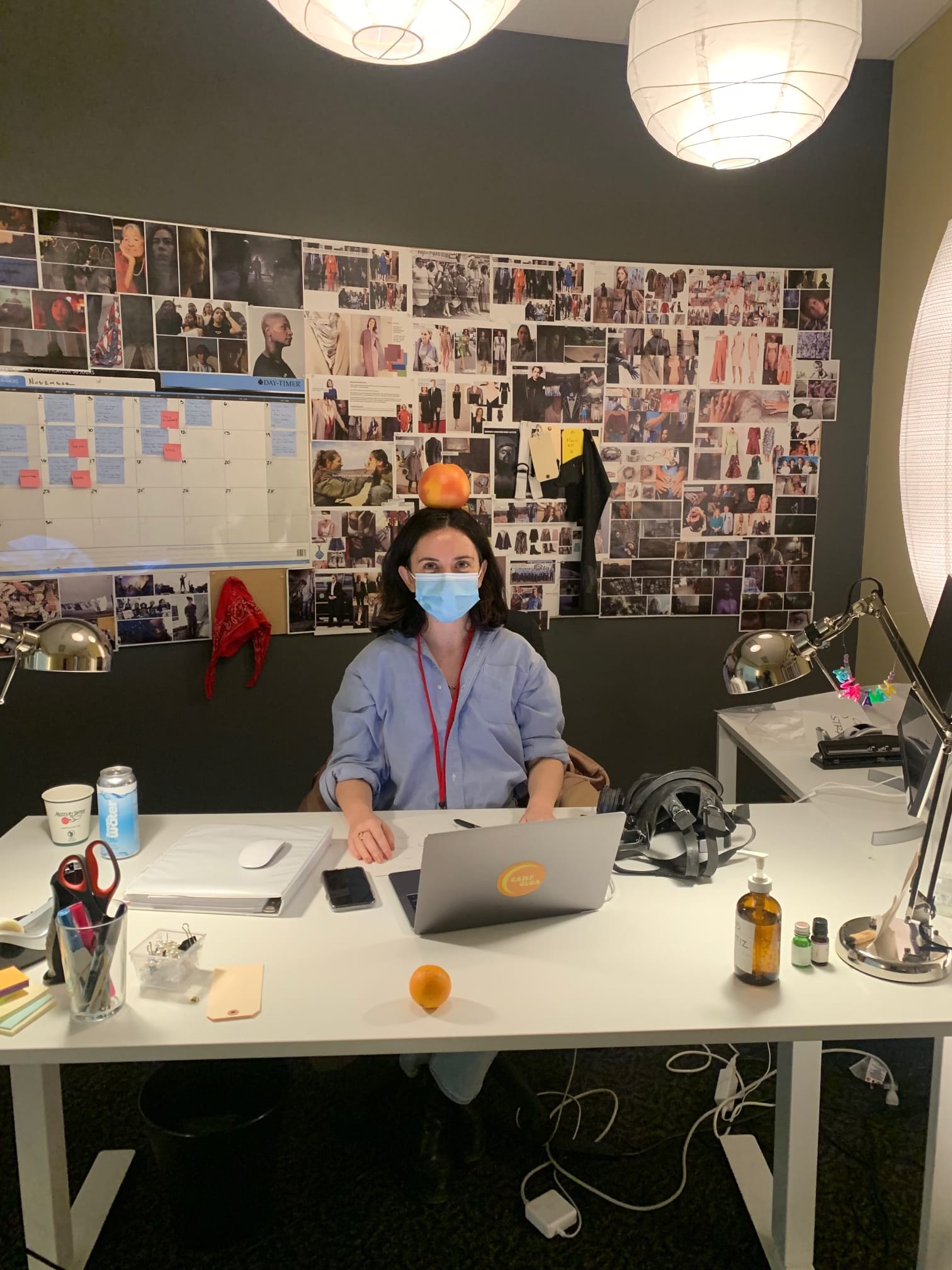
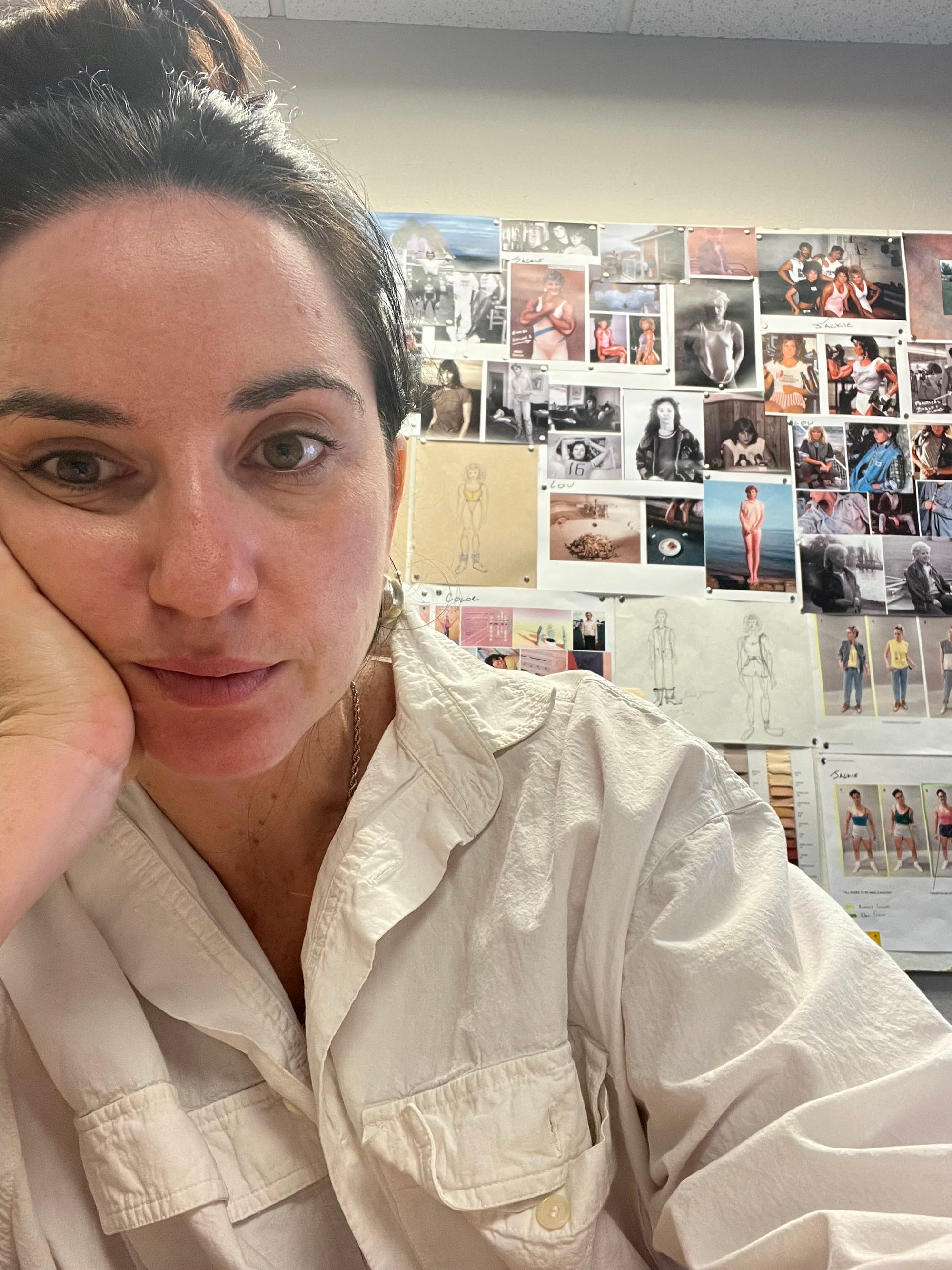
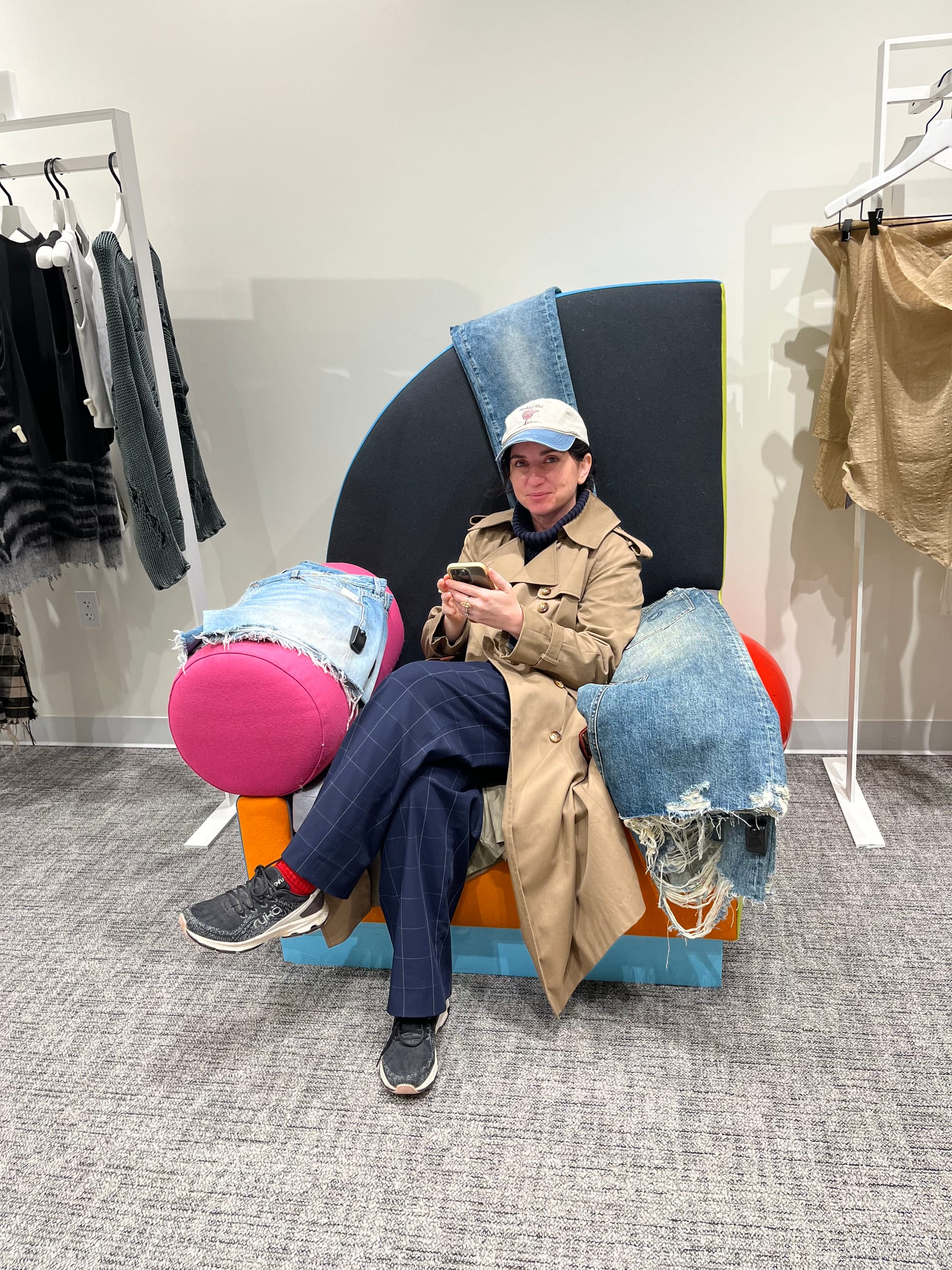
Olga at work (left to right) at Y: The Last Man, Love Lies Bleeding, and The Night Always Comes
Eliza: When did you get interested in costume design?
Olga: Going to community theater, I think. At first, my only concept of design came from performing, being a kid in productions of like Winnie The Pooh!
Eliza: Who did you play?
Olga: Animal Number 4.
Eliza: That's one of my favorite parts.
Olga: Thank you. It was iconic. Oh! I will say I did play Tigger one year.
Eliza: This was a full time Winnie The Pooh community theater!
Olga: Then, I went to Laguardia in New York, which is a performing arts high school. I was in the theater department as an actor. I have some complicated feelings about it, but one thing I loved was that you had to make your own sets and costumes for your scene study classes. I was always really crafty, and I kept thinking, wow, I like this part so much more. And I remember having this kind of breakthrough moment… You know how sometimes you have a very clear thought that feels like it's not your own? I was walking home from my friend’s house and I remember thinking, Oh, I could just do the costumes, and then I could still be in theater, but it's not as scary as performing, and it’s a bit more, I don’t now, academic in a way. I liked school. At Laguardia, you took academics as well, but in a kind of fucked up way the attitude from teachers was like Okay, we know you guys are artists, but, unfortunately, you have to write this paper. As if the two things were mutually exclusive. There was something about costume design and set design where you were allowed to be artsy and academic.
Eliza: You have to do a lot of research!
Olga: It's such a naive, binary way of thinking of it, but that's how it was presented— either you're a barely literate artist or you’re a nerd. I just remember having the thought: Oh, well, this will work. And then, I had a very linear path. I went to SUNY New Paltz for Theatre Tech. Very Liz Lemon.
Eliza: Love it.
Olga: And then, I worked at a costume shop, and assisted for a ballet designer, I worked at a dye shop, and then I went to grad school for costume design. That was really formative. For awhile I thought, I'll work in a costume shop and that'll be fulfilling or I'll assist somebody and that'll be enough. Going to grad school gave me more confidence to actually become a designer.
Eliza: You're the best costume designer on Earth.
Olga: My God.
Eliza: You’re definitely my favorite costume designer I've ever worked with. I can't wait to work with you again. It's gonna be great, and it's gonna happen soon. Can you talk a little bit about your creative process?
Olga: I start with just the script, taking really intense notes and writing down questions. I remember having to do that in acting classes in high school: what does everyone say about my character? What do I say about myself? Whatever that exercise is, I sort of do the same thing. And then also conceptual research, which is just anything I emotionally respond to in the script, having nothing to do with clothing at all for a while. Eventually, it does get more down to specifics. We just moved and we’re setting up our house. It’s like that process where you imagine what this light fixture needs to be, or you imagine painting something a certain color. It’s almost like a compulsive feeling that can only be released once it's realized, if that makes sense.
Eliza: Totally makes sense.
Olga: It becomes an agitation or something… You can edit this out, but it's like you just have to shit it out, you know?
Eliza: I'm not gonna edit that out.
Olga: Whenever you have a creative idea that you have to realize, it's a feeling of I have to. And then, once you do it, there’s something orgasmic about it. It’s like a release, an energy inside your body that has to come out.
Eliza: I've never thought of my creativity in a shitting metaphor, but now I will forever. I got a little reminder of your process when I had a big meeting recently.
Olga: It was Major.
Eliza: I had a MAJOR meeting with Paris Hilton who is obviously a style icon. I called you in a bit of a panic because what the fuck do you wear to meet one of the most iconic people in the whole wide world? The first thing you said was What do you want her to feel about you? It’s so simple, but I was like, Oh, my God! That's incredible! That's an incredible way to think about sartorial choices. I want her to feel that I'm professional, cool but not too cool, that I'm smart, but not trying too hard.
Olga: I think we nailed it.
Eliza: I don't know how much I'm allowed to say about this, but I'll just say I got the job and I'm incredibly excited.
Olga: I don't think it was because of the outfit, but all those choices are sort of like... I wish there was a positive word for it, I'm sure there is, a word that is the same as manipulative...
Eliza: Manipulative but there's nothing sinister to it.
Olga: That's what costume design is. But also, the design of your life is all just trying to manipulate how people perceive you as you go through the world.
Eliza: Advertising yourself with the choices you make.
Olga: The part of costume design that I find the most interesting is how you have to create your own language. The same way you're like, Oh, I can read the word dog, and I know that means dog, you have to decode clothing the same way. If the blazer sleeves are rolled up that's saying this, but if the blazer sleeve is rolled down, that's saying something else. I think for me that decoding comes from immigrating at a young age. You have to decode what everybody's social cues are. I was a detective thinking: okay, everyone thinks that girl is really cool. You have an outsider perspective to whatever the Lord of The Flies social dynamics are when you parachute in. So you observe: everyone’s being really nice to her. Why? And then you decode those dynamics. Figuring out an outfit for an interview or for life is the same thing as the costume design of a show. So for the interview, you ask: how do you want her to perceive you? It's the same as: how should the audience perceive this character in the scene? What would be the most helpful design for telling the whole story?
Eliza: That question taught me a lot about how to dress every day…. mostly I just wear sweatpants, but I have great hopes for the future.
Olga: Sweat pants are a power move.
Eliza: I also never wear a bra, and I definitely do not have small enough boobs for that to be okay. It's not okay.
Olga: I think it's okay. The bra thing is really interesting. Don't you feel like it really changed after Covid?
Eliza: Yes, because I never wore a bra, except when I was physically in the office or on set. So much of the time I was on a screen.
Olga: But then it was so hard to put it back on.
Eliza: Yes, it was like wearing hard pants, which are also hard to put on.
Olga: Very hard, but I think a bra is like… there's so much shaming: this is inappropriate, or like this is making people uncomfortable.
Eliza: I definitely make people uncomfortable when I'm braless. But I still can't help it. I wouldn't go to a meeting without a bra on, but if I'm in my house and you're in my house? That's a bra-free zone.
Olga: Don't you want to be like that's your problem? It's just interesting to unpack. I think about being in high school or whatever, and the rule that your skirt can't be above the knee. If you boil it down, they’re saying it's so distracting that boys are just gonna lose their minds.
Eliza: Yeah, that is definitely their problem.
Olga: At what point do you say: Oh, I want to go out in no bra, and I just want it to be everyone else's problem. But at the same time, I get it, I've been in situations where there's somebody without a bra, and, like, their boobs are out at the grocery store. Part of me is like awesome. And then another part of me is like it's a lot.
Eliza: It makes sense that you were an actor. You really understand character on a deep level. I'm sure that's why actors love working with you so much. You don’t come at the work from a place of: How do I want this to look? It feels like the most urgent question you are asking is: How do I want to make the audience feel? When you and I were composing an outfit for my meeting, thinking of myself as a character was very helpful. For some reason it made my anxiety about it feel less embarrassing.
Olga: I'm so glad that was helpful. It's the juiciest part, it all comes from the fact that all of this is a character. I don't know what the line is, where the authentic part is, but, all of it is a performance, you know.
Eliza: Understanding that it's a performance probably actually makes you more authentic. We are all performing gender and identity all the time. When you're aware of it, there's a way to be like I've made authentic choices about what I want to present today and I am aware of it. I think that potentially puts you in a more authentic place to approach the day.
Olga: Totally, cause you're acknowledging it. Authenticity has become such a sought after commodity, but in some ways “authenticity” is the ultimate performance.
Eliza: That’s so much of the question in a presidential race, for example. Everyone is always looking for authenticity, but every single thing a candidate says or wears or the way they present, the way they talk… There are teams of people polling every single thing to see what will land as authentic.
Olga: If we can all just acknowledge that we're doing a balancing beam act… let's just score it for what it is.
Eliza: I think this desire comes from the way we present ourselves on the Internet. Authenticity is prized, but it is still a performance. It's a performance when people are super “authentic” on social media. It’s curated authenticity, which is… not completely authentic.
Olga: And then when you use this lens to design characters it becomes so meta. Let’s make fake people and make them real… but then in real life everyone is creating their own character. The more people are like, Oh, I'm going to make a character out of my own life and design it and present it to the world, the more we will ask but what’s the real version?
Eliza: At a certain point, there is no real version. We're all living in the matrix. Do you think about that when you approach your work? Because characters also have the authentic person that they are and the person that they want people to perceive them to be? Do they always get it right?
Olga: No one ever gets it right. I always ask whoever I'm working with: who does this character have a poster of up on their wall? Who does this character think is cool? I always think about the poster up on the character’s wall… and then I ask myself, how close is the character to nailing that vibe? Are they like really left of it? Are they pretty close?
Eliza: How good are they at creating the image of what they want the world to to think of them?
Olga: Exactly. Yes. And then the other thing I always think about is outside versus inside personas. There's some people who are aesthetically a version of themselves outside the house versus inside the house, like the same way you're talking about having a bra on or not having a bra on. How porous is that membrane between the way you visually present outside the house and inside the house? Sometimes I really think about what I'm wearing inside at home, because I'm performing some kind of version of cute, put-together lady bopping around the house.
Eliza: I was diagnosed with ADHD about a year ago. I go into periods of hyper focus and super productivity, and then I have to regroup for a week because I've burned myself out. I decided to start tracking my mood in an app on my phone, thinking that if I track this and start to see the pattern of the peaks and valleys I might be able to give myself a break when I'm in a period letting the fields lie fallow.
Olga: I love that.
Eliza: So I have this app where you can track your mood. But you can also track things that might be contributing to your emotional state. You can track anything — phases of the moon, where you are in your cycle, what the weather is, stuff like that. One of the things I added to it was whether or not I wore a purposeful outfit because I think that it affects me. I forget that it affects me, and I'll go for four days wearing the same sweatpants. And then I'm like, why am I so depressed? Maybe it’s the sweatpants! I’m learning.
Olga: If I really don't want to do something, I'll dress up more for it. If I'm ever wearing a red lipstick outside the house, it’s a cry for help. It means, I don't want to be here, I want to be in my bed like crying. It's like coffee, or it's like a drug to get it up. Social Viagra.
Eliza: I’m trying to think if I've ever seen you wear red lipstick outside the house with me.
Olga: Or if I just don't want to do something at home, I'll have a cleaning outfit that involves like a headscarf because it will put me in the mood. As a kid, all the media that we consumed was from the male gaze. I have such distinct memories of it as a teenager, and all through my twenties, the mind fuck of even when you're at home alone doing things around the house, just occupying space, it’s as if you're still being watched by a man. I remember reaching for something in my closet, but really seeing it from a bird's eye view, and constantly judging whether it was the shot of the boy having a crush on this girl… the blurry lens, the light hitting you in the right way. That really prevented me from having an authentic lived experience. because… it’s as if you took a drug, but the drug is the male gaze. It really took a lot of effort to get out of that trip. And so when you ask what did you dream about being as a kid? I don't know if I really had that space to have a formed opinion of what I wanted my life to look like, because the thing that was dreamy was just nailing the role of being like the women in movies. Being desired, or always saying no until you finally say yes, never needing anything…
Eliza: Totally. My main dream, basically until my thirties, was being desired by a man. Even if as a kid the dream seemed like it was, say, about being an amazing singer… the real dream was that I get up in front of the whole school, and I sing a song, and every boy falls desperately in love with me.
Olga: 100%.
Eliza: Never for the love of the art.
Olga: No.
Eliza: It's fucked up. It's crazy.
Olga: It's so fucked up. When I think about that, I actually get really angry, cause what a waste of time. It’s the biggest robbery of all to completely mind fuck somebody out of having their own experience going through the world. The idea that you could be alone and still imagining that you’re being watched, like there was a frame around me, a camera lens. And the person holding the camera was always a man. You see women on TV shows and movies it was always through that lens. So I was always trying to find my light so I could be the girl in the classic shot where the guys sees the girl he has a crush on.
Eliza: Totally. I've never quite thought of it this way, but that's exactly the experience I had as a young person as well. Imagining myself as a woman in a movie, observing rather than embodying.
Olga: I really feel like when that lifted, it’s like your trip is over. I can't believe I am in the same room, but everything felt so different…
Eliza: The 9 of cups is also about pleasure, the pleasure of the body, pleasure of the senses. When you're looking at yourself from the outside, you’re never really present. I always felt like my life would start when a boy loved me.
Olga: But that call is not coming from inside the house. The world tells you that. I don't want to speak for your parents, but most parents tell you that in a way.
Eliza: My parents have been together for so long that even if they didn't say it, it still felt like their marriage was at the center of our lives. They found each other when they were fourteen. So I was always kind of on the lookout for my person, for when my life would start, which would be when I became part of a unit.
Olga: My parents met when they were young. My sister met her husband when she was in college. All my cousins got married young. So … that was just part of the adult package, you know?
Eliza: And now you are about get married.
Olga: I know, I know. It’s really interesting to think about what that means going through the world.
Eliza: I got married when I was twenty-six, and I am very lucky that the person that I married turns out to be the person that I continue to want to be with. But you know, Zack and I talk about this all the time… We made a video of ourselves the night before we went to go get married. In the video, I’m doing a voice and touching my hair and trying to be cute. I’m performing. I was authentically in love with him and excited to get married, but I was also playing the part of “Woman About To Get Married.” It could have gone really badly. It turns out that Zack and I continue to like each other, and got to know each other as we went, and we liked what we learned, but it could have been bad. I performed this version of the cool girl who entices the man, but what happens when you wake up in the morning and you’re still you. The fact that you are getting married in your thirties…
Olga: 39, yeah.
Eliza: But in your adulthood, as a person who really knows herself, is very exciting.
Olga: It's also just luck, I think. Whoever I was dating at 26, I would have been like, I'll marry you. Thank God those people didn't want to marry me, because I think I would have married them and then I would have been fucked because unlike you and Zack, we were not right for each other.
Eliza: I thank my lucky stars that the person who I married turns out to be a person I continue to want to be married to, but it was definitely a kind of luck.
Olga: It's always luck. Me meeting Karl is luck for sure. Something about it happening when you're older… I don't know. I was thinking about it the other day. When Karl and I fell in love…sorry for how cheesy this is gonna sound for a while, but also not sorry. It’s something I wanted for a long time, but nothing ever really quite clicked in that way. I don't want to talk shit about my other relationships. They were very worthwhile, but there was always such a huge part of my brain that was taken up by wondering: Should I be here? Is this right? Is that normal? Huge chunks of brain and time. But then I met Karl and suddenly it’s: oh, I feel so certain about this. I didn't think that certainty was real, or I thought people were sort of lying about it. I really thought people were full of shit when they said they were sure. Experiencing it feels kind of whimsical. It’s almost like, Oh, my God! The whole time mermaids were real! I can't believe it! I didn't believe them, but they're real. Do you know what I mean? It's finding out this very childlike thing that you were sold your whole life actually is real. It really did change my perception of the world, it fairy dusts things, you know?
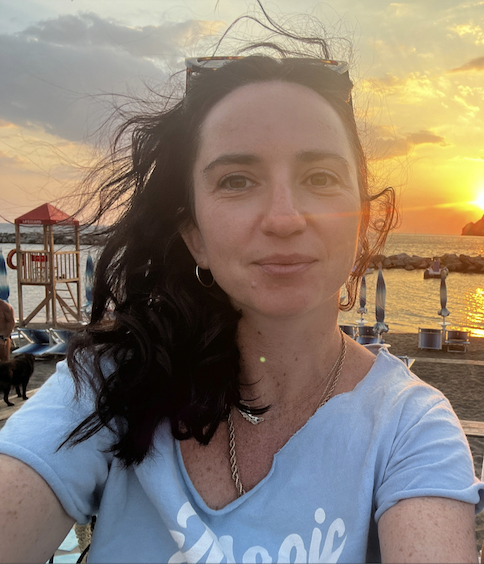
Eliza: I was in a very committed relationship before Zack. We were very young, but I had all kinds of fears and ambivalence. And we were not right for each other, even though we had a great relationship in a lot of ways. I remember thinking, I'm gonna marry this person, but I also thought, everyone is full of shit saying that they're only excited to get married. I remembering thinking, sure, you’re excited a little bit. But also you're worried, and of course you can’t really be sure. And then when I met Zack, I was like, Oh, no, no, I'm just excited. I have only positive feelings. The 9 of cups comes after the 8 of cups, which is about walking away from things that are hard to walk away from without knowing what's on the other side. That feels potent to this conversation about previous relationships.
Olga: Endings of things can be such a gift. You know the story, but Tyler and I broke up, and it was a very messy breakup. Tyler was the person I was seeing before Karl…
Eliza: But when you broke up, you didn't know Karl was coming. There's a scary free fall that happens when you walk away from something that is good but not great, without knowing what comes next.
Olga: For sure.
Eliza: But the only way to get to the real, truly great thing is to walk away from the okay thing.
Olga: If I could send the woman that Tyler had an affair with an edible arrangement, I would.
Eliza: You probably still could.
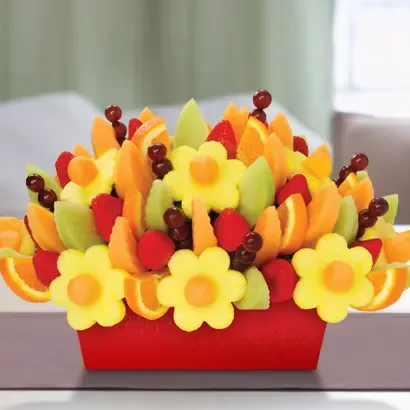
Olga: Like: Thank you. There's no longer any hard agitation about the break-up, you know? But if I hadn't met Karl and I was still bopping around dating, I would have probably much harder, complicated feelings about it.
Eliza: But even if Karl had not materialized, it still would have been better not to make the choice that puts you in a place where you're not entirely sure.
Olga: For sure. But there's still an attitude about being single to contend with.
Eliza: Our culture is very much set up to prioritize people who are coupled.
Olga: Karl and I are gonna do the courthouse initial portion on Friday actually. It doesn't change anything. We live together. Our life doesn't change, but we’ll sort of be going through the world with this other identity. Now you have a husband or you have a wife. There’s even some shame around saying how much I coveted that… it's much cooler to be like I never wanted this. But now it’s like, Okay, well, here's the cookie. You get what you want, your dreams are realized, you find somebody you really love and you’re getting married, or you get the job that you really wanted, or you’re living somewhere you really want to live. All these things are kind of like, Oh my God! Mermaids are real! But then, at the same time, you still wake up at the witching hour at four AM, and there's a wave of anxiety. Whatever that force is doesn't dissolve.
Eliza: Everywhere you go, there you are. Even when your dreams come true. That dovetails perfectly into my last question for you. How do you cope with happiness?
Olga: I don't know. I don't know. There's the really sweet parts where you're like, Oh, I'm gonna like really enjoy it, or feel really grateful for it. It makes me think of this metaphor I have in my head all the time: When I was going to grad school and I was living in Dumbo, I had to bike over the Manhattan Bridge every day. Did I ever tell you this?
Eliza: I don't think so.
Olga: So it's like, okay, the bridge is an archway, right? So on the way up, it’s so hard, it’s exhausting. I remember being like, Oh, I'm so present because my only thoughts are basically: this is so hard, a little bit more, you’re almost at the top… You're really inside of what you're doing. And then, the second half of the bridge feels great. It's downhill. The breeze is going. It's super easy. But I found that my brain, instead of also being like, Oh, this is so nice! Look at the breeze! It would be like, oh, I have to do this thing when I get to school. It’s almost easier to be in the struggle of it than the joy of it. There’s something about when you're first falling in love, or I hope I get this job. And then… you get it. During the anxiety and the struggle of wanting those things, you're very present. But when you finally get what you want, it can be really hard to enjoy the breezy part of the bridge.
Eliza: That's such a good metaphor. When I got into college, I got into the school I’d always wanted to go to, and in my senior year, I worked really hard and got a bunch of things I had really wanted. So naturally I spent the entire summer convinced I was going to die. It was really hard for me to just be grateful or be present with the feeling of I worked hard and I got what I wanted. I'm continuing to work on how to be in the moment, and acknowledge that the good times are happening right now.
Olga: Do you think it's a worthiness thing?
Eliza: I think it's worthiness, yes, but I also think it's capitalism. There's a part of our culture, specifically American culture, that makes us feel like striving is the only acceptable state of being. But every time I do mushrooms, the message that I get from the mushrooms and the trees and the universe? I literally get the same message every time: Quit striving, just be.
Olga: I just imagine that phrase in like a Live, Laugh, Love font.
Eliza: Decorated with paddles on either side.
Olga: You have to do it in a washed out white.
Eliza: Washed out white on a wood board. Hang it above my sink.
Olga: Yeah. Quit striving, just be.
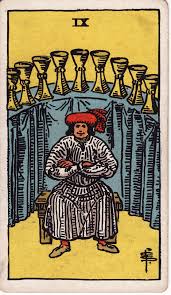
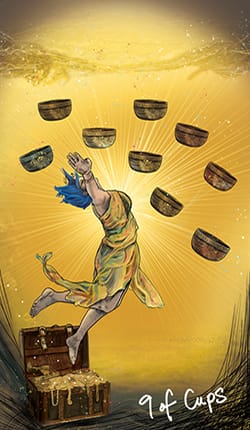
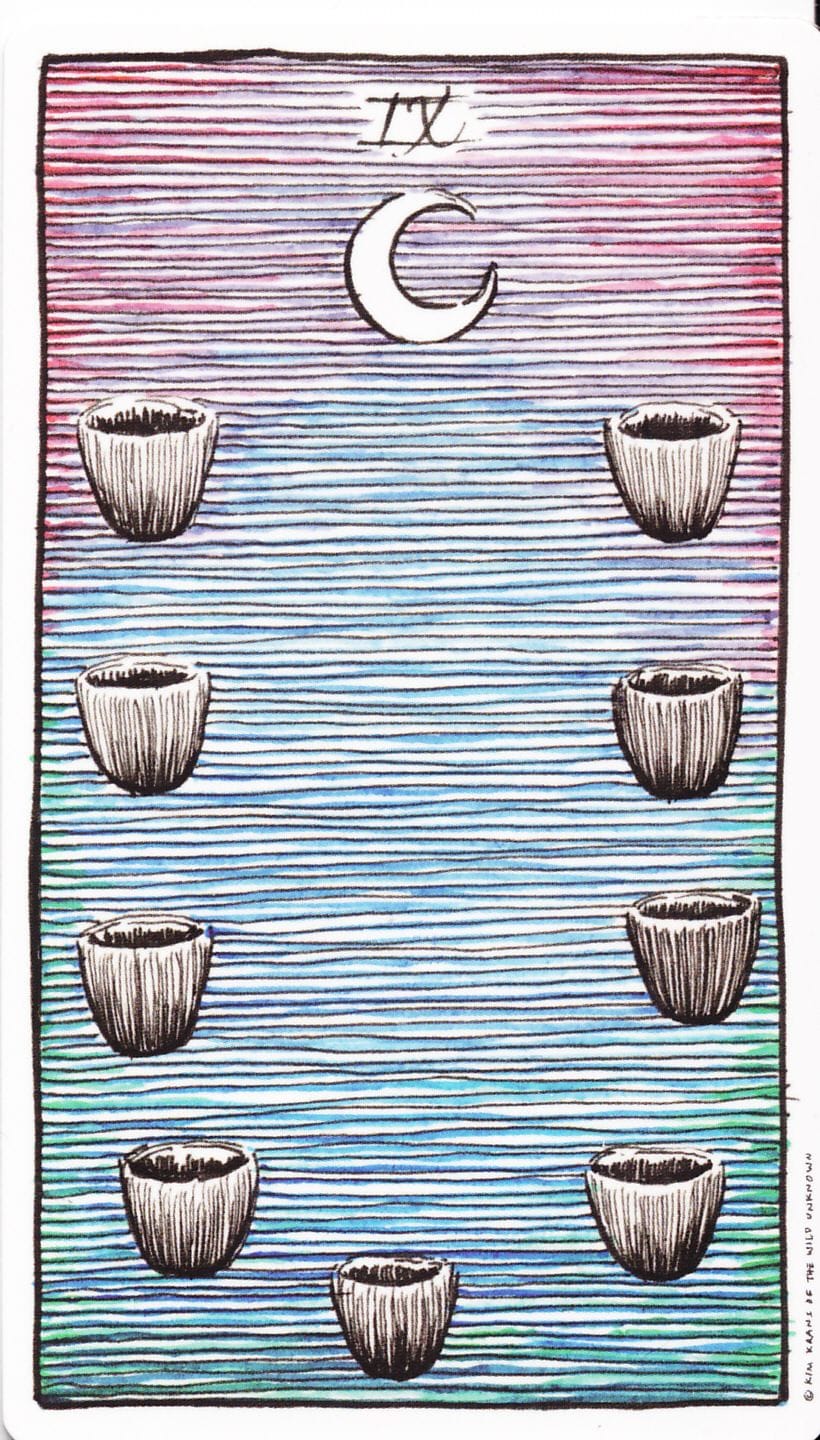
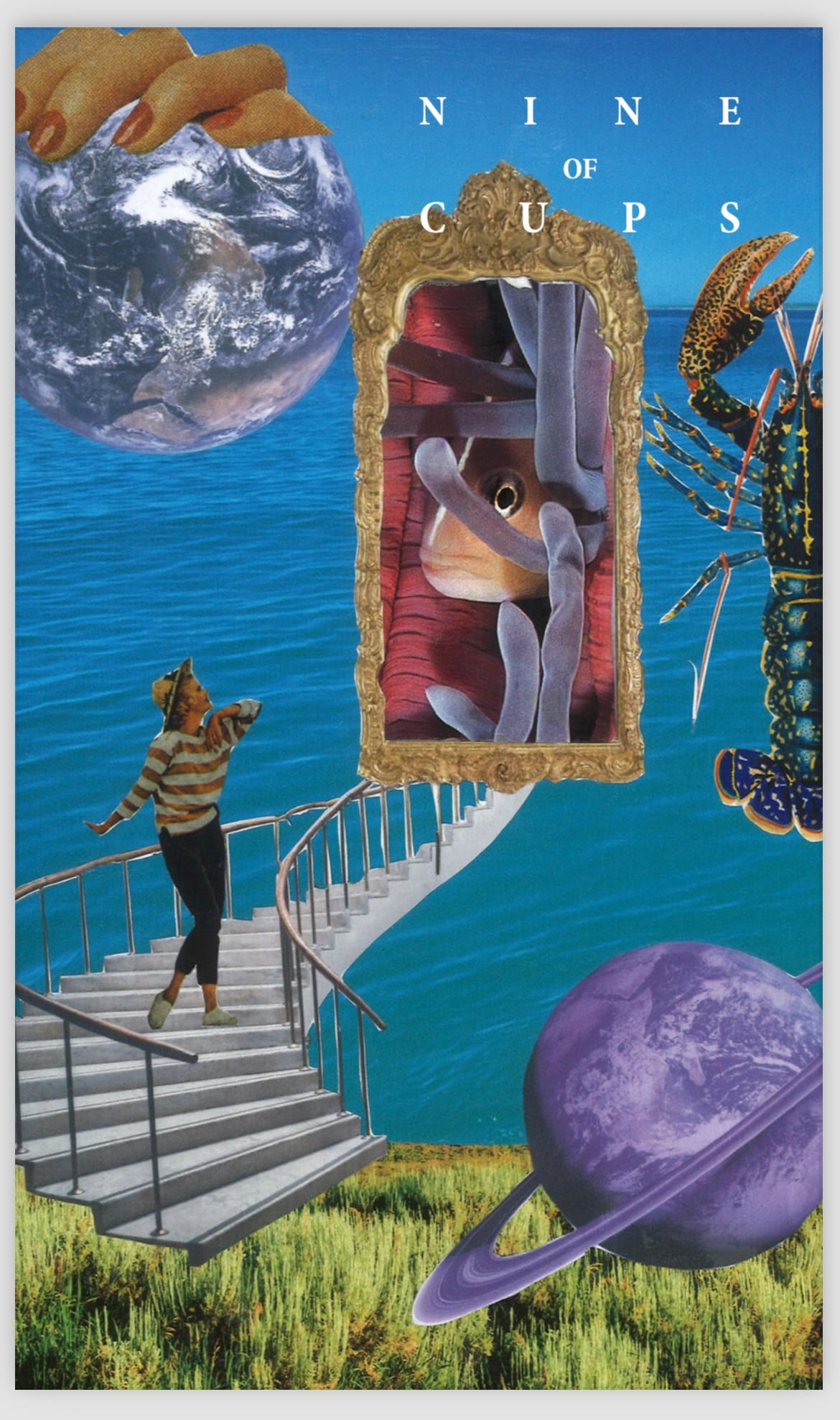
Recommendations!
Some more interviews with the brilliant Olga Mill!!
Also! If you enjoy thinking about how clothing informs identity, I love the book Women In Clothes by Sheila Heti, Heidi Julavits, Leanna Shapton, and 639 Others
I would love to hear from you guys! Leave me a comment! How do you cope with happiness? Which of your dreams have come true and how did it live up to your expectations?
